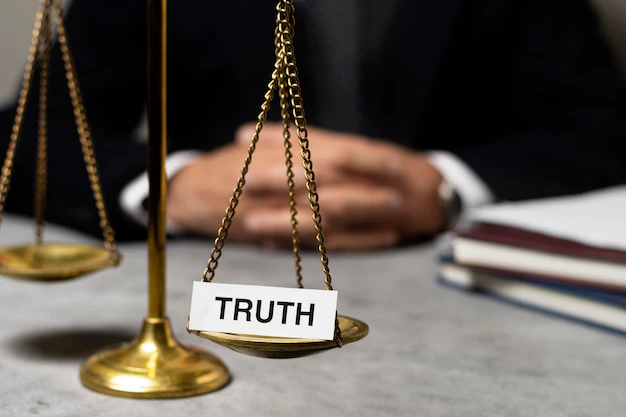Disputes are inevitable in human interactions, spanning various aspects of life. Resolving these conflicts effectively and fairly is paramount to maintaining harmony and upholding justice. This comprehensive guide talks about resolving disputes through the legal lens and highlights the crucial role a legal firm plays in facilitating the resolution of complex conflicts.
Contents
Understanding Dispute Resolution
Dispute resolution is the structured process of addressing conflicts and finding equitable solutions. While informal methods may suffice for minor disputes, complex issues often require the expertise and guidance of a legal firm to navigate the intricacies of the law effectively.
Types of Disputes
Disputes manifest in various forms, necessitating tailored approaches for resolution.
1. Family Disputes
Family conflicts, including divorce, child custody, and inheritance disputes, often require the intervention of a legal firm. These emotionally charged disputes demand legal expertise to ensure equitable outcomes for all parties involved.
2. Business Disputes
Businesses contend with disputes relating to contracts, employment, partnerships, and more. Resolving these conflicts efficiently is essential for preserving business relationships and safeguarding financial interests.
3. Personal Injury Disputes
Personal injury cases, encompassing accidents, and medical malpractice claims entail seeking compensation for injuries or harm. A legal firm is instrumental in securing just compensation and advocating for the rights of the injured party.
1. Legal Framework for Dispute Resolution

The legal system forms the bedrock of dispute resolution, providing structured avenues through alternative dispute resolution (ADR) methods and litigation.
2. Alternative Dispute Resolution (ADR)
ADR methods, including mediation, arbitration, and negotiation, offer alternatives to conventional litigation. Legal firms specialize in these methods, fostering open dialogue and cooperation to reach mutually acceptable resolutions.
Mediation and Negotiation
Mediation and negotiation hinge on constructive dialogue between disputing parties, often facilitated by a skilled legal professional. Legal firms excel in these approaches, emphasizing collaboration and compromise over adversarial tactics.
Arbitration
Arbitration entails a neutral third party hearing both sides of a dispute and rendering a binding decision. Legal firms are adept at guiding clients through this streamlined process, which is particularly suited for complex commercial disputes.
Litigation
Litigation, the formal legal process of dispute resolution through the courts, is another avenue in which legal firms excel. It follows a structured path: filing a lawsuit, discovery, trial, and appeals to ensure due process and enforce legal rights.
Related: Elevating Your Legal Strategy: 7 Significance Of Law Firms
3. Steps in Dispute Resolution
Effective dispute resolution necessitates a systematic approach:
Preparing for Resolution
Gathering relevant information and documentation is crucial to construct a compelling case. Legal firms excel in this aspect, leveraging their expertise to compile and organise essential evidence.
Initiating the Dispute Resolution Process
Initiating the process may involve filing a formal complaint or opting for ADR methods. Legal firms offer invaluable guidance, aiding clients in selecting the most suitable approach based on the specifics of the dispute.
4. Understand The Importance Of Legal Contract Negotiations
In the world of business and domestic matters, disputes are inevitable. The two parties within one circle of concern can stand opposite each other. Descent is quite common in human nature. However, the difference in the opinions can be fixed through continuous dialogue. In this stage, one must discuss the contracts. They are one of the effective ways to tackle the legal issues between the two parties involved. However, preparing the contracts can indeed be a daunting task. This is where the role of the legal experts becomes quite important.
Professional Help
These experts are thorough professionals and have an in-depth understanding of the laws, regulations, and clauses that bind a deal between the two parties. They are well aware of the impact and consequences of the laws. This is where the role of the legal expert becomes quite important.
Precision
The legal experts work with precision and have all the advantages that make the entire deal quite strong enough. With the help of their knowledge, they prepare a document that is precious and devoid of any double meaning, ambiguity, or misinterpretation.
Identifying The Mitigation
Moreover, legal experts assist in identifying and, thereafter, mitigating the potential risks that are associated with the negotiation of contracts. An expert legal professional is well knowledgeable and can handle the contracts’ terms and conditions with the utmost straightforwardness.
The experienced legal professional has the capability to identify the potential loopholes in the terms and conditions. They are good enough and can handle things with the utmost clarity and command.
5. The Role of Legal Representation
Legal representation by a reputable firm safeguards clients’ rights, ensuring they are protected throughout the dispute resolution process. Attorneys provide guidance, strategy, and advocacy to navigate complex legal procedures effectively.
6. The Importance of Communication
Effective communication remains pivotal to successful dispute resolution. Legal firms emphasize transparent and strategic dialogue, even when tensions run high, to achieve favorable outcomes.
7. Specialized Dispute Resolution Considerations

Different types of disputes necessitate specialized expertise:
Family Law Disputes
Family disputes often entail intricate issues such as child custody, divorce, and inheritance. Legal firms specializing in family law bring the requisite knowledge to preserve family relationships while securing fair outcomes.
Business Disputes
Business-related conflicts can disrupt operations and finances. With their expertise in contract law and corporate matters, legal firms offer tailored solutions to protect clients’ interests and foster resolutions that safeguard business relationships.
Personal Injury Disputes
Personal injury cases involve assessing liability, calculating damages, and advocating for just compensation. For instance, LionHeart Lawyers is a legal firm that focuses on personal injury law to guide clients through the intricacies of these cases to ensure fair outcomes.
Choosing the Right Approach
Selecting the most appropriate dispute resolution method hinges on various factors, including the dispute’s nature, parties’ willingness to cooperate, and desired outcomes. Legal firms provide invaluable insights, tailoring strategies to specific circumstances for optimal results.
Conclusion
Dispute resolution is fundamental to maintaining justice and order in society. Whether dealing with family conflicts, business disputes, or personal injury claims, the legal lens offers a structured and equitable path to resolution. This comprehensive guide has underscored the instrumental role that a reputable legal firm plays in facilitating dispute resolution. By harnessing legal expertise, individuals and organisations can confidently navigate complex conflicts, ensuring that justice prevails and equitable resolutions are achieved.
Read Also:












